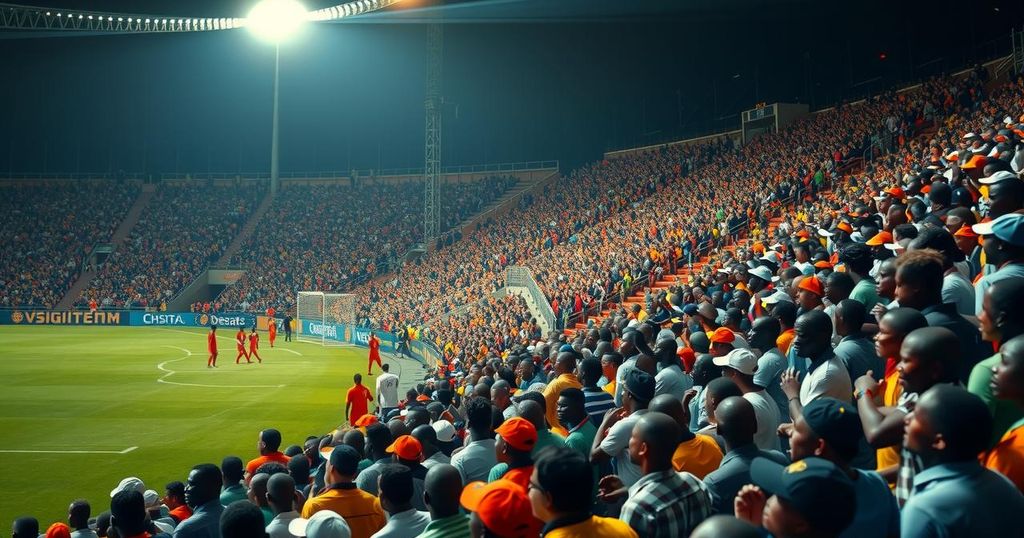Tragedy Strikes Guinea Football Match: Crowd Crush Leads to Multiple Deaths
A crowd crush during a football match in Guinea’s N’zérékoré resulted in numerous fatalities after fans protested a referee’s decision. Prime Minister Mamadou Oury Bah called for calm as local authorities worked to manage the situation. This incident comes in the wake of historical violence during public events in Guinea, raising urgent concerns about safety and crowd control.
In a tragic incident at a football match in N’zérékoré, Guinea, significant chaos resulted in numerous fatalities due to a crowd crush. Eyewitnesses reported that the turmoil erupted following a controversial call made by the referee, prompting supporters from the visiting team, Labé, to flood the field in protest. As tensions escalated, local police resorted to using tear gas to disperse the crowd, leading to a dire situation in which many individuals were injured and some reportedly lost their lives.
Prime Minister Mamadou Oury Bah addressed the grave events, emphasizing the need for calm as regional authorities attempted to restore order. Medical personnel at local hospitals confirmed that they were overwhelmed, with bodies arriving at the morgue and reports of the facility reaching capacity. Videos circulating on social media depicted scenes of despair, with large groups attempting to surmount stadium walls and bodies strewn on the ground, although these claims await independent verification. Reports indicate the presence of thousands of spectators during the incident, which occurred amid a national tournament commemorating President Mamadi Doumbouya’s leadership which began after a coup in September 2021.
The distressing occurrence brings to mind past tragedies within Guinea, particularly the massacre that transpired in 2009, which claimed 156 lives during a violent military response to an opposition rally. The former military leader, Moussa Dadis Camara, was recently convicted of atrocities related to that event, reflecting an ongoing struggle with the repercussions of political violence and governance within the nation.
This recent tragedy highlights ongoing issues regarding crowd control and safety during public events in Guinea. Football matches often draw significant crowds, and the potential for violence can escalate rapidly, particularly when tensions arise over officiating decisions. Historical context is critical; the previous massacre in 2009 reflects a disturbing pattern of violence that has marred sporting events and public gatherings in the country. The recent incident demands scrutiny and raises questions about the efficiency of security measures in place to protect citizens during such high-attendance events.
In conclusion, the crush at the football match in N’zérékoré not only reflects an acute crisis in crowd management and spectator safety in Guinea but also serves as a reminder of the wider implications of political unrest and public safety. Immediate actions taken by authorities and the ongoing efforts of medical staff to tend to the injured are crucial, yet there is an urgent need for comprehensive evaluations of security protocols to prevent such tragedies from recurring. The nation must confront its history of violence and work towards ensuring safe environments for its citizens, especially in contexts evoking strong emotions such as sports.
Original Source: www.bbc.co.uk




Post Comment